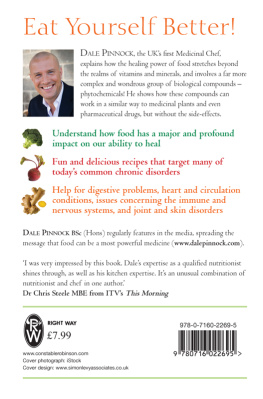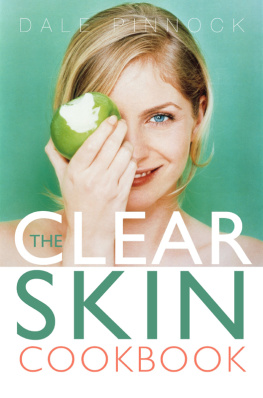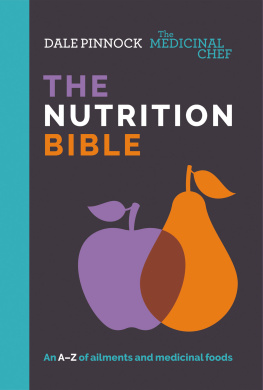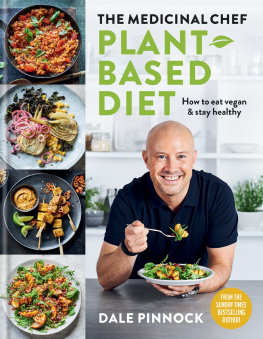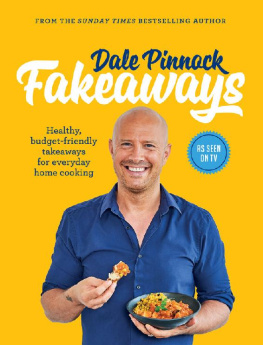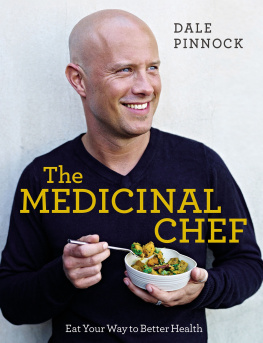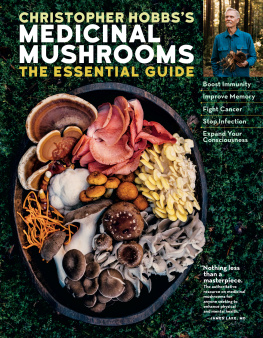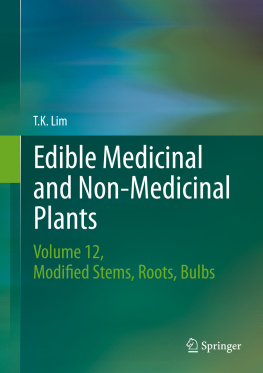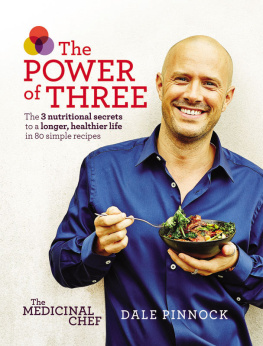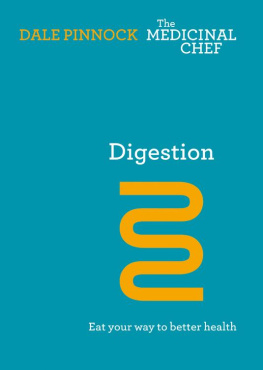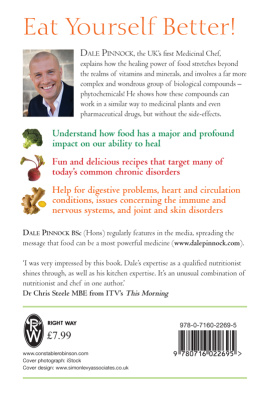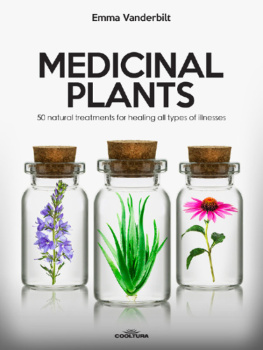Medicinal
Cookery
About the Author
Dale Pinnock, the UKs only Medicinal Cook, is frequently sought out by the media for his detailed in-depth knowledge of the fields of nutrition, herbal medicine and phytonutrients. He qualified in both Nutrition and Herbal Medicine and trained at the University of Westminster. He runs private healthcare clinics in Cambridgeshire and Hertfordshire where he combines herbal medicine with nutritional healing to provide a full and far-reaching therapeutic programme.
Medicinal
Cookery
How you can benefit from natures edible pharmacy
Dale Pinnock

Constable & Robinson Ltd
55-56 Russell Square
London WC1B 4HP
www.constablerobinson.com
First published in the UK by Right Way,
an imprint of Constable & Robinson, 2011
Copyright Dale Pinnock 2011
The right of Dale Pinnock to be identified as the author of this work has been asserted by him in accordance with the Copyright, Designs & Patents Act 1988.
All rights reserved. This book is sold subject to the condition that it shall not, by way of trade or otherwise, be lent, re-sold, hired out or otherwise circulated in any form of binding or cover other than that in which it is published and without a similar condition including this condition being imposed on the subsequent purchaser.
A copy of the British Library Cataloguing in Publication Data is available from the British Library
ISBN: 978-0-7160-2269-5
1 3 5 7 9 10 8 6 4 2
Printed in Italy by Rotolito Lombarda
Picture Credits
John Garon :p.2, p.104, p.109 / Visipix.com:p.4 / Rocky Mountain Laboratories, NIAID, NIH: p. 31 / US Department of Health - CDC - Dr. Mae Melvin: p.73 / All other pictures under Creative Commons License with attribution to:calebkimbrough: p. 13; s13610: p. 15; SqueakyMarmot: p. 18; : p. 21; dmswart: p. 25; Scoro: p. 34; Schilling 2: p. 37; shimgray: p. 39; mckaysavage: p.41; seelensturm: p.44; shioshvili: p. 47; JMRosenfeld: p.52; Vvillamon: p.55; Jude Doyland: p.59; smleon: p.61; Andrew Michaels: p. 65; Mavis: p. 71; felipe_gabaldon: p.78; FotoosVanRobin: p. 80, p. 147, p.153; David Davies: p. 84; smoorenburg: p. 87; xJasonRogersx: p. 96; yanivba: p. 98; theseanster93: p.100; Hari Prasad Nadig: p. 108; quinn.anya: p.116; dotbenjamin: p.118; Jeen Na: p.123; Muffet: p.126; Andrew Morrell Photography: p.129; lovejanine: p. 131; Arria Belli: p.136; king_david_uk: p.140; YimHafiz: p.142; mfdudu: p.157; larryjh1234: p.158; Bill Hails: p.160; Jeff Kubina: p.163; izik: p.165; heathervescent: p.169; Sknska Matupplevelser: p.170; JACoulter: p.173; SweetOnVeg: p.177; Clearly Ambiguous: p.181; Charleston's TheDigitel: p.183.
Contents
With delicious recipes to help improve the health of:
A-Z Guide to the most powerful, common medicinal foods on the planet in the following categories:
Thank you
Jenny Liddle your tireless hard work and belief in me has moved mountains in the last 12 months watch out World!! Tanya Murkett for being a nonstop source of inspiration in every day of my life, and bringing light when all around is dark. Id have no idea where I would be, a single day without you! Nick Salt your wisdom, support, and insight have shaped my life immeasurably. Mum and Dad, Cheryl Thallon, Ramsay and Candy, Judith and co at Right Way, Shazzie, all the Westminster University survivors. The myriads of people who have enjoyed my work and sent me so many lovely messages you are the reason I do this. All the regulars to my radio shows, and subscribers to my website you are the greatest!

O UR ATTITUDES to food arent what they used to be. Thats certainly true. Not so long ago, here in the UK, the meat and two veg approach was the norm in most households. Many of us would see our food as simply fuel, to keep us going through the day. Something just to fill us up and give us energy. The more we ate, the stronger we became, or so we thought, and many of us would leave the house, ready to take on the day, having eaten a full breakfast.
Today, we have finally started to make the connection between food and our health. No more do we see food as just a bit of bulky fuel. Modern science has proved unequivocally that the food we eat has a direct impact upon our health and wellbeing. By making the right dietary choices, we can essentially trigger, or prevent, disease.
With such realizations in mind, modern science has started to delve deeper into the world of what we eat. Foods are being analyzed down to their most basic of components, and are revealing all manner of secrets. The actions of different nutrients on body systems are being studied in the context of disease management, and the links between nutrient deficiency and increased disease states are getting stronger as each month goes by.
The public is also more informed than ever before, and healthy food is big in the media. Every day new articles abound that tell us what foods are good for us and why, and what to avoid and why. There are new snippets of information about what is thought to be the next superfood, or the next food that has been linked with cancer, or the next food to make you look twenty years younger. While some of this information may be faddy and not always accurate, it has certainly created a buzz around food. It has made eating healthily something thats actually quite cool and sociable. It has made us think in a different way about what we put in our mouths, and opened up a whole wonderful world of new possibilities, not only in what we can create in the kitchen, but also in the levels to which we can take our health.
We now have an incredible wealth of information at our fingertips. My aim in this book is to convey some of this knowledge, in a new and exciting way, to inspire you and to show you how easy and enjoyable eating for health can be.


H IPPOCRATES, the father of modern medicine, famously once said, Let food be thy medicine, and thy medicine be thy food. Every recorded healing system on the planet, through every conceivable historical age, has recognized the vitally important role that food has to play in both maintaining good health and, indeed, turning around disease patterns. Many ancient cultures relied purely upon food remedies as their source of medicine, and many, such as Ayurveda and Traditional Chinese Medicine, studied the intricate relationships between food and physiological functions for millennia. Often, they used terms that relate to supposed energetic patterns and activities in foods, and how these would interplay with similar energetic patterns and events in the body, to either cause balance or harm.
In the last two centuries, the study surrounding the relationship between food, our body, and our health has been moving at quite a pace. Quite early on, we discovered things such as proteins and carbohydrates, realizing their importance in energy production and tissue maintenance. Piece by piece, we became aware of the individual vitamins and the physiological roles that they played. We became all too aware of the negative consequences of being deficient in these vital compounds, but there was seldom research that focused on the potential of these compounds to actively heal the body. As nutritional science progressed, we focused on things such as the calorie, saturated and unsaturated fats, and body mass index (BMI). Nutritional science now has reached a bit of a sticking point. The dieticians may well tell you that we know all there is to know, and that eating x amount of calories will keep you at a healthy weight, and that at a certain weight and height you need y amount of a specific vitamin or nutrient.

